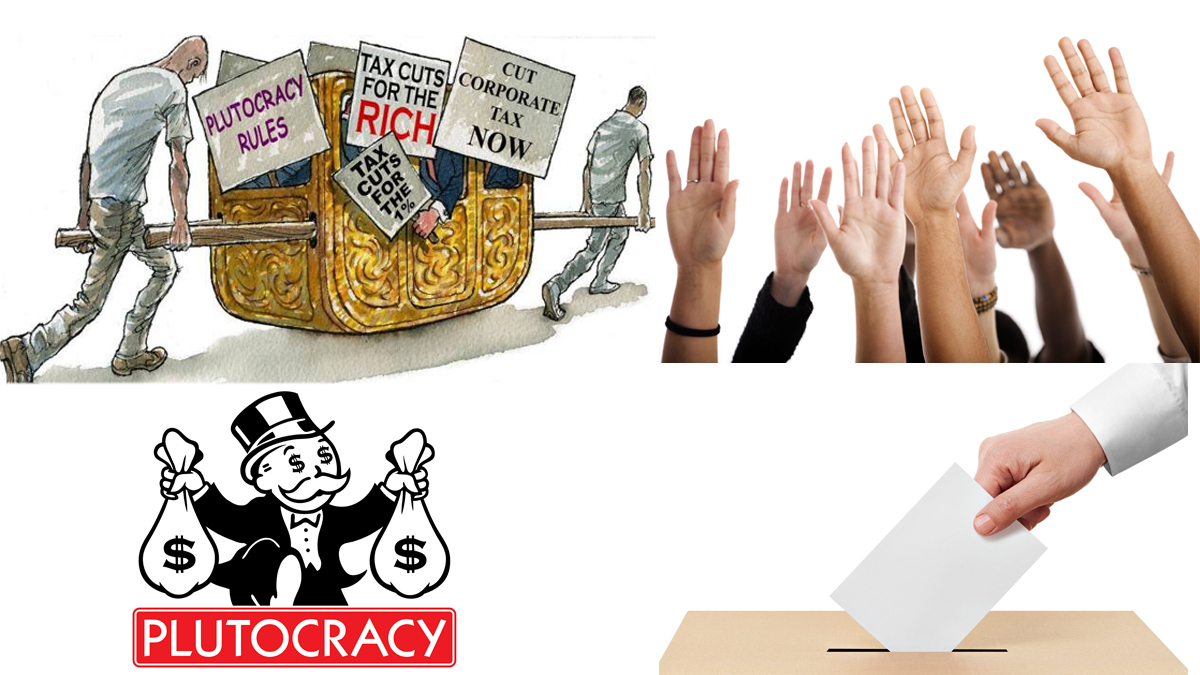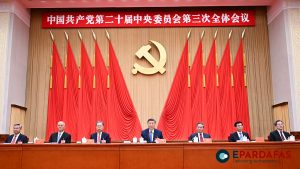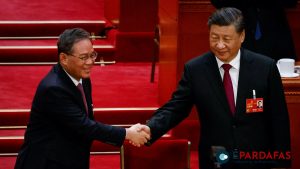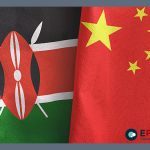
Democracy or Plutocracy Navigating the Balance of Power

In an ever-evolving world where political landscapes shift and power dynamics redefine themselves, the eternal struggle between democracy and plutocracy takes center stage in the realm of governance. Democracy, with its promise of equal representation, individual freedoms, and participatory decision-making, has long been regarded as the ideal system for just and inclusive societies. However, the ascent of plutocracy—a system where wealth translates into political influence—challenges the very essence of democratic values, raising questions about the integrity of governance and the balance of power.
Democracy, with its roots in ancient Greece and subsequent iterations throughout history, has been a guiding light for nations aspiring to uphold the voice and will of their citizens. It stands as a testament to the belief that collective decision-making, rooted in the principles of popular sovereignty and protection of individual rights, provides the most equitable foundation for a just society. However, as the complexities of modern governance unfold, democracy faces an array of challenges that test its resilience and integrity. Voter suppression, gerrymandering, and the rise of identity politics are just a few examples of obstacles that democracy must confront in the pursuit of true representation. The erosion of trust in institutions, fueled by perceived corruption and a perceived detachment from the needs of ordinary citizens, further strains the democratic fabric. The commodification of political influence, as wealth and power converge, threatens to subvert the very essence of democracy, transforming it into a system that primarily serves the interests of the privileged few.
It is within this context that the concept of plutocracy emerges as a formidable force challenging the ideals of democracy. Plutocracy, characterized by the concentration of wealth and influence in the hands of a wealthy elite, presents a stark contrast to the principles of equality and representation. When economic power translates into political power, decisions and policies are often swayed to favor the interests of the wealthy at the expense of the broader population. The implications of this system reach beyond mere economic disparities, affecting social cohesion, public welfare, and the fundamental fabric of societies.The erosion of democratic institutions serves as a poignant reminder of the threat posed by the influence of wealth. The injection of money into politics, through campaign financing, lobbying, and revolving doors between industry and government, can undermine the very essence of representative governance. As the power of wealth permeates decision-making processes, the voice of ordinary citizens can be overshadowed, leading to a sense of disillusionment and disengagement from democratic processes. The erosion of trust in institutions further weakens the democratic foundation, making the pursuit of an equitable society all the more challenging.
Defining Democracy: A Beacon of Hope
Democracy, often hailed as a beacon of hope, embodies the ideals of popular sovereignty, individual freedoms, and participatory decision-making. At its core, democracy seeks to empower individuals by granting them the right to voice their opinions, elect their representatives, and actively engage in shaping the policies that govern their lives. It embraces the belief that every citizen, regardless of their socioeconomic background or status, should have an equal opportunity to contribute to the collective decision-making process. The essence of democracy lies in its commitment to representation, ensuring that diverse voices are heard and taken into account. Through free and fair elections, citizens exercise their right to choose leaders who will represent their interests, values, and aspirations. This process creates a sense of ownership, fostering a society where individuals have a stake in the decisions that impact them and their communities. Moreover, democracy serves as a safeguard for individual rights and freedoms. Democracy has long been hailed as a system that champions the will of the people. Rooted in the principles of popular participation and the protection of individual rights, it serves as a beacon of hope for citizens seeking a voice in shaping their collective destiny. Yet, in an increasingly complex world, maintaining the integrity of democratic processes faces numerous obstacles such as voter suppression, partisan polarization, and the commodification of political influence.
Plutocracy’s Shadow: Wealth as a Driving Force
Plutocracy, with its shadow of concentrated wealth and power, poses a significant challenge to the ideals of democracy. In a plutocratic system, economic influence translates into political power, often leading to policies that primarily benefit the wealthy few at the expense of the broader population. This paradigm shift, where wealth becomes a driving force in shaping political decisions, raises profound concerns about the fairness, equity, and inclusivity of governance. One of the primary implications of plutocracy is the perpetuation of socioeconomic inequalities. As wealth accumulates in the hands of a privileged elite, the gap between the rich and the poor widens, exacerbating social divisions and hindering social mobility. Resources and opportunities tend to be concentrated among the wealthy, limiting access to quality education, healthcare, and other essential services for the less affluent members of society. Plutocracy thus undermines the very foundations of democracy, which rests on the principle of equal representation and the pursuit of the common good.
An alarming consequence of the influence of wealth is the erosion of democratic institutions. The flow of money into politics, through campaign financing and lobbying, can undermine the democratic process by distorting representation and policy outcomes. As wealthy individuals and corporations exert their influence, the voice of ordinary citizens can be drowned out, leading to a sense of disillusionment and a perceived disconnect between the people and their elected representatives. While plutocracy poses significant challenges, democratic systems possess the capacity to adapt and reinforce themselves. Implementing robust campaign finance regulations, ensuring transparency and accountability, and promoting grassroots movements can help rebalance the scales of power. Public awareness and civic engagement play a vital role in holding elected officials accountable, demanding systemic changes, and fostering a culture of participation that transcends the influence of wealth. Preserving the balance between democracy and plutocracy requires collective action. Civil society organizations, advocacy groups, and engaged individuals play a crucial role in monitoring democratic processes, safeguarding transparency, and amplifying the voices of marginalized communities. By promoting civic education, fostering dialogue, and nurturing a sense of civic responsibility, these actors strengthen democratic resilience and empower citizens to actively participate in shaping their societies. The interplay between democracy and plutocracy remains a pivotal challenge in modern governance. While democracy stands as an ideal worth upholding, the specter of plutocracy poses substantial threats to the principles of equality and representation. Recognizing these tensions and actively addressing them is crucial to preserving the integrity of democratic institutions and ensuring that the voice of the people remains paramount. By striking a delicate balance and reinforcing democratic resilience, societies can navigate the complexities of power, fortifying their commitment to a governance system that serves the collective interests of all citizens.
- Navigating the Perils of Digital Crime in Nepal: Building a Safer Digital Future
- “Importance of Forming Defense Attacker to Control Cybercrime Damage”
- “Undermining Democracy: The Impact of Political Interference on Judicial Appointments in Nepal”
- Striking a Balance: Ensuring the Best Representation in Independent Student















Comments